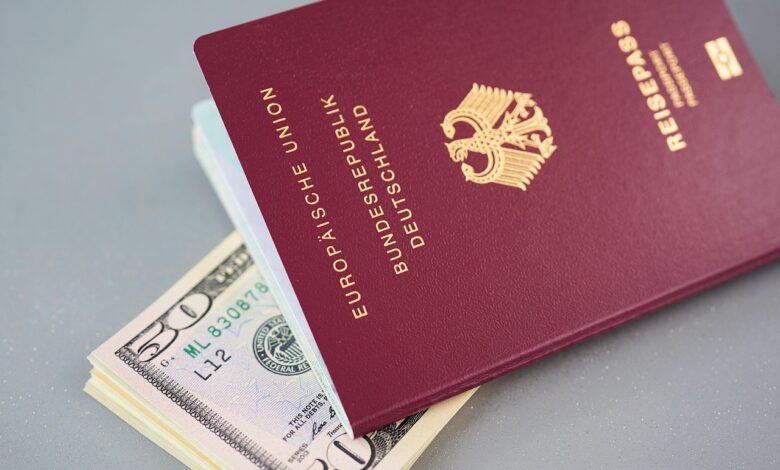How to Extend Your Student Visa in Greece: A Step-by-Step Guide

If you’re studying in Greece and your student visa is nearing its expiration date, it’s crucial to apply for an extension before it expires. Extending your student visa allows you to continue your education legally and avoid potential penalties or deportation. The process can be complex, but with proper preparation and understanding of the requirements, you can navigate it successfully. Here’s a comprehensive guide on how to extend your student visa in Greece.
1. Understand the Basics of a Greek Student Visa
A student visa (Type D) allows non-EU/EEA students to study in Greece for more than 90 days. Once you enter Greece, you must convert your visa into a residence permit (Άδεια Διαμονής) within 30 days of arrival. This residence permit is typically valid for one year and can be renewed annually as long as you remain enrolled in an accredited educational institution.
2. When to Apply for an Extension
- You should begin the renewal process at least two months before your current residence permit expires . Delays in submission may result in complications or fines.
- It’s important to note that overstaying your visa without applying for an extension can lead to legal issues, including deportation or bans on re-entering Greece.
3. Eligibility Requirements for Renewal
To qualify for a student visa extension, you must meet the following criteria:
- Be actively enrolled in a recognized educational institution in Greece.
- Have sufficient financial resources to support yourself during your stay.
- Maintain valid health insurance coverage.
- Provide proof of accommodation in Greece.
4. Documents Required for Visa Extension
Gather all necessary documents before submitting your application. Missing or incomplete paperwork can delay the process. The required documents typically include:
a. Completed Application Form
- Obtain and fill out the official residence permit renewal application form from the local Aliens and Migration Department (Υπηρεσία Μετανάστευσης και Προσφύγων).
b. Valid Passport
- Your passport must be valid for at least three months beyond the intended period of stay.
c. Current Residence Permit
- Submit your existing residence permit along with your application.
d. Proof of Enrollment
- A letter or certificate from your university confirming your enrollment and good standing.
e. Financial Proof
- Demonstrate that you have sufficient funds to cover your living expenses. This could include:
- Bank statements showing a minimum balance (typically €5,000–€6,000 annually).
- Scholarship letters or sponsorship documents.
- Employment contracts (if applicable).
f. Health Insurance
- Provide proof of comprehensive health insurance valid in Greece. This can be private insurance or coverage through a national scheme.
g. Accommodation Proof
- A rental agreement, utility bill, or other documentation proving your address in Greece.
h. Passport-Sized Photos
- Two recent passport-sized photos meeting Greek specifications.
i. Fee Payment Receipt
- Pay the renewal fee (approximately €100–€150) and include the receipt with your application.
5. Steps to Extend Your Student Visa
Follow these steps to ensure a smooth renewal process:
Step 1: Visit the Local Immigration Office
- Locate the nearest Aliens and Migration Department office. These offices handle all visa and residence permit applications.
Step 2: Submit Your Application
- Present your completed application form and supporting documents to the immigration authorities.
- You may need to schedule an appointment in advance, so check the office’s procedures online or by phone.
Step 3: Attend an Interview (if required)
- In some cases, you may be asked to attend an interview to verify your intentions and eligibility.
Step 4: Wait for Processing
- Processing times vary but usually take 1–3 months. During this time, you are allowed to remain in Greece even if your current permit expires.
Step 5: Collect Your New Residence Permit
- Once approved, return to the immigration office to collect your renewed residence permit.
6. Common Challenges and How to Overcome Them
a. Long Processing Times
- Start early to account for delays. If your permit expires while waiting, carry your application receipt as proof of your pending status.
b. Language Barrier
- Many immigration offices operate primarily in Greek. Bring a translator or consult with your university’s international office for assistance.
c. Insufficient Documentation
- Double-check your documents to ensure they are complete and accurate. Seek guidance from your school or a legal expert if unsure.
d. Financial Shortfalls
- If you’re struggling to prove financial stability, consider applying for scholarships or part-time work permits.
7. Additional Tips for a Smooth Renewal Process
- Stay Organized: Keep copies of all submitted documents and receipts for future reference.
- Monitor Deadlines: Set reminders to avoid missing critical dates.
- Consult Your University: Most universities have dedicated staff to assist international students with visa-related matters.
- Legal Assistance: If you encounter difficulties, consider hiring an immigration lawyer familiar with Greek regulations.
8. What Happens After Graduation?
If you plan to stay in Greece after completing your studies, explore other visa options:
- Job Seeker Visa: Allows graduates to search for employment for up to 12 months.
- Work Visa: If you secure a job, you can apply for a work permit.
- Permanent Residency: Long-term residents may qualify for permanent residency after five years of continuous legal stay.



